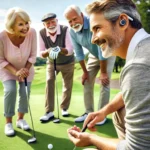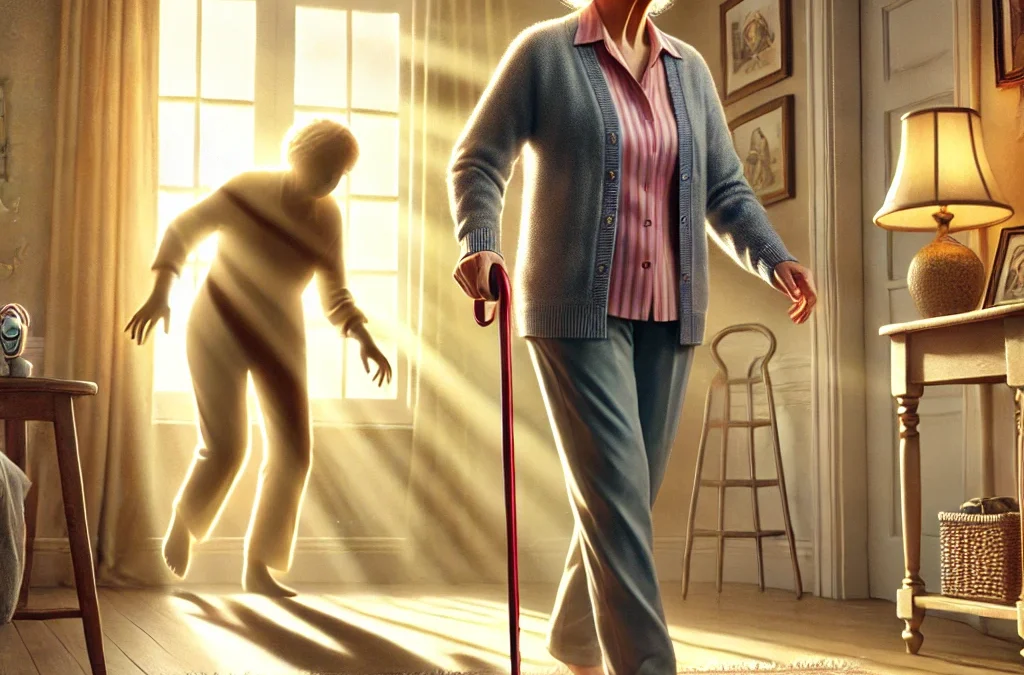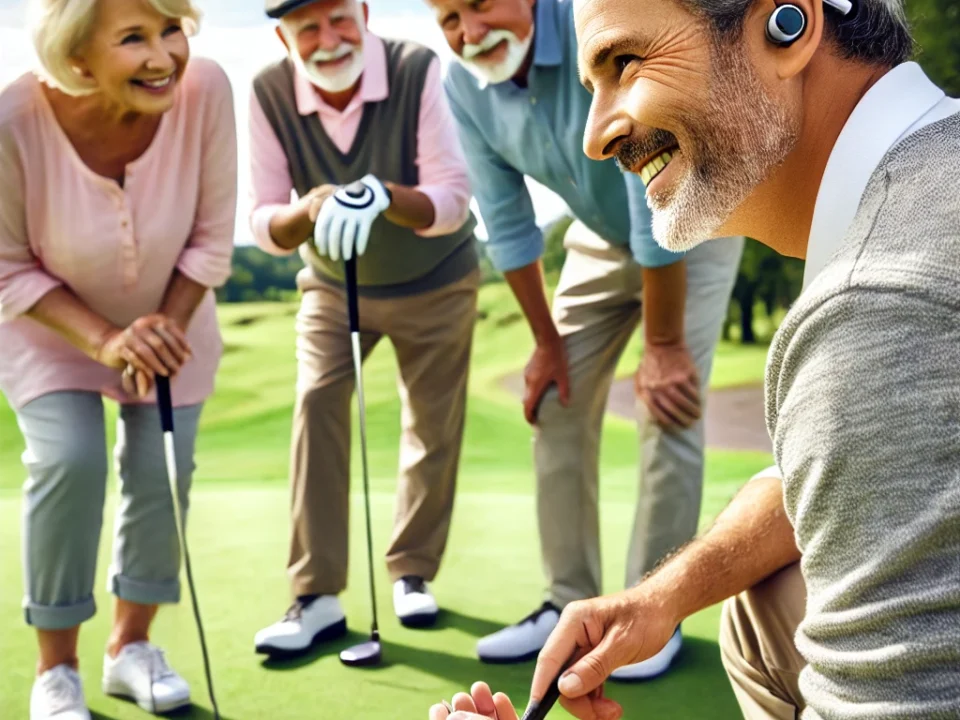The Evolution of Hearing Aids and Hearing Diagnostics up to the 1930s
April 14, 2025
Hear Your Way to a Better Golf Game: How Hearing Aids Improve Your Performance on the Course
April 15, 2025At The Audiology Place, we understand that hearing health is about so much more than your ears. It’s about your safety, your independence, and your overall quality of life. That’s why we’re raising awareness about one of the most underappreciated risks of hearing loss—falls.
The Hidden Risk: Falls and Hearing Loss
Falls are a leading cause of injury and death in older Australians. In fact, falls and their consequences cost more than $50 billion every year globally. What many don’t realise is that hearing loss significantly increases your risk of falling. Research shows that older adults with hearing loss are 2.4 times more likely to suffer a fall compared to those with normal hearing. That’s not a small risk—it’s a serious safety concern.
Why does this happen? Hearing loss doesn’t just affect what you hear. It also impacts your spatial awareness, balance, and cognitive load. When your brain works harder to hear and interpret sounds, fewer mental resources are left for maintaining stability and balance. It’s like walking on a tightrope while doing a crossword—eventually, something’s going to give.
Hearing Aids Can Cut Your Fall Risk in Half
Here’s the good news: wearing hearing aids—especially wearing them consistently—can significantly reduce your chances of falling. A 2023 study published in the Journal of the American Geriatrics Society found that hearing aid users had 50% lower odds of falling compared to non-users. And for those who wore their hearing aids consistently (defined as four or more hours a day for over a year), the benefits were even more dramatic—a 65% lower risk of falls.
That’s not just promising. That’s life-changing.
Hearing and Balance Are Deeply Connected
Our sense of balance is governed by a complex interplay between our eyes, muscles, joints—and crucially, our inner ears. The auditory and vestibular systems share the same space in the inner ear, and damage to one often affects the other. Even a mild hearing loss—just 25 decibels—has been shown to triple the risk of a fall. As hearing declines, the brain receives fewer cues about the environment, making it harder to navigate the world safely.
And here’s something we often see in clinic: many people don’t wear their hearing aids at home. They assume they only need them for conversations or TV. But the truth is, hearing your fridge hum or the birds chirp outside isn’t just a luxury—it helps your brain stay spatially anchored. Every sound contributes to your awareness of your surroundings. Take those away, and your sense of stability can quite literally begin to wobble.
Hearing Aids: A Simple, Non-Invasive Fall Prevention Tool
Unlike medications or surgical interventions, hearing aids are a non-invasive, low-risk way to protect against falls. Think of them as a kind of “auditory walking stick”—they help orient you in the world, improving both your confidence and your safety. They support better balance, clearer thinking, and sharper alertness. And they help keep you socially connected, which is vital for mental health and physical wellbeing.
Let’s not forget: falls don’t just hurt bodies—they hurt lives. One fall can lead to hospital stays, loss of independence, or even long-term disability. If you’re worried about yourself or a loved one falling, don’t just buy non-slip mats or handrails (though those are great too). Start with a hearing test.

The Audiology Place: Your Partner in Hearing and Balance
At The Audiology Place, we specialise in whole-of-life hearing care. That includes balance discussions, hearing loss treatment, and ongoing support for hearing aid users. As an independent clinic, we’re not tied to any hearing aid brand—which means your solution will always be tailored to your needs, not a sales target.
Dr. Signe Steers brings over 20 years of experience in hearing health, with a strong focus on evidence-based care. From the first consultation to follow-up adjustments, you’ll be guided with expertise, compassion, and a genuine commitment to your wellbeing.
Don’t Wait for a Fall to Take Action
If you or someone you love has hearing loss—even if it’s mild—now is the time to act. A simple hearing aid could not only help you hear better, it could help you stay on your feet.
Call us today to book a comprehensive hearing assessment in our soundproof clinic in Forestville. Because better hearing means better balance—and that means a better life.
References
Campos, L., Prochazka, A., Anderson, M., Kaizer, A., Foster, C., & Hullar, T. (2023). Consistent hearing aid use is associated with lower fall prevalence and risk in older adults with hearing loss. Journal of the American Geriatrics Society, 71(10), 3163–3171. https://doi.org/10.1111/jgs.18461
Criter RE, Honaker JA.(2016). Identifying balance measures most likely to identify recent falls. J Geriatr Phys Ther; 39: 30–37.
Koh da H, Lee JD, Lee HJ. (2015). Relationships among hearing loss, cognition and balance ability in community-dwelling older adults. J Phys Ther Sci; 27: 1539–1542.
Lin FR, Ferrucci L. (2012). Hearing Loss and Falls Among Older Adults in the United States. Arch Intern Med.;172(4):369–371. doi:10.1001/archinternmed.2011.728
Lopez D, McCaul KA, Hankey GJ, et al. (2011). Falls, injuries from falls, health related quality of life and mortality in older adults with vision and hearing impairment—is there a gender difference? Maturitas; 69(4):359-36421664773
Viljanen A, Kaprio J, Pyykkö I, et al. (2009). Hearing as a predictor of falls and postural balance in older female twins. J Gerontol A Biol Sci Med Sci.; 64(2):312-31719182227


